With the closure of Tango Gameworks, Xbox sends an accidental message: it is not a platform for fans of Japanese games
No matter what Xbox leadership says in its livestreams or in statements, one thing remains true: it's relationship with Japan never came first.
Japan has always been a sticking point for Xbox. I’ve heard some people at games publishers describe the brand’s fortunes in the country as ‘cursed’. That seems a bit dramatic, but let’s roll with it. Some argue that it all started with the name.
The DirectX box - the Xbox - was always a sort of unfortunate name in the territory. An X is a ‘batsu’ - a cross used to indicate you’ve gotten an answer wrong in a test or somesuch. You’ll often see Japanese cross their forearms in an X shape at oblivious tourists doing something they shouldn’t - a non-verbal way of saying ‘don’t do that’. This is why on earlier PlayStation consoles, X and O were reversed in Japan - O for ‘OK’, and X for ‘Cancel’, the opposite of the West. In the West, X marks the spot. At the electoral ballot box, you place an X next to the person you want to represent you. In Japan, a lot of the time, X means ‘no’. The No-Box.
Even if you don’t buy that cultural element, it’s undeniable that Xbox has had its struggles in Japan. Even its best-selling generation, the Xbox 360, trailed all rivals by millions of units. Since then, it’s only gotten worse. But this has never just been about Japan as a market to sell consoles.
Games are undeniably Japan’s biggest and most important cultural export. There’s an argument to be made that without Japan and the vision of eccentric toymaker Nintendo, the Western video game market might’ve never bounced back from the 1983 crash. Certainly, the recovery would’ve taken much longer. Japan has been instrumental to pretty much every stage of the development of video gaming as a hobby - and that has one key consequence: people the world over love Japanese-made games.
This is why we get into the weeds with the difference between an RPG and a ‘JRPG’. Regardless of how dire the straits of the domestic console gaming market in Japan, many people the world over profess a particular predilection for games made in Japan, with their unique cultural heritage and sense of tradition. Even if we want to get into arguments about if that audience is significant, if it’s growing or shrinking - it’s there.

This has been a problem for Xbox. Xbox has never particularly been a place to play ‘games from Japan’. Some third-parties have been committed to Xbox, while others aren’t. It’s true that Sony ‘money-hats’ things like Final Fantasy to keep them off Xbox, but Xbox misses out on countless Japanese titles regardless. Smaller publishers, like Nippon Ichi, just skip the platform because it isn’t worth their while. The only way to reverse that is to build an audience within your install base for those publishers to sell to - and that’s where first-party output comes in. I’d argue that one point of first-party product is to set an example - and the example Xbox initially set was little output from Japan.
In the 360 generation, this changed: the company inked a range of exclusivity deals for games like Square Enix’s Star Ocean 4 and Infinite Undiscovery or Capcom’s Dead Rising.
It also bankrolled first-party development on games like Lost Odyssey and Blue Dragon from Final Fantasy creator Hironobu Sakaguchi, or generally-forgotten but genuinely enjoyable B-listers like Musou knock-off Ninety-Nine Nights and FromSoftware slasher Ninja Blade. For two entries, Xbox was also the exclusive home of Dead or Alive, and was ahead of the fighting game guest character curve with the inclusion of one of Halo’s Spartans in the fourth game. Beyond that, Xbox’s relatively lax approvals process and PC-like development environment meant even within Japan it enjoyed the odd exclusive, becoming the defacto home for things like pervert simulator Gal Gun.
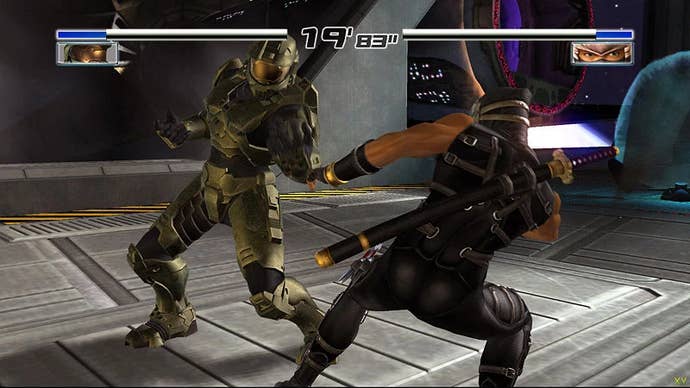
Then… well, who knows what happened? To put it nebulously, things just changed. Big time. After a huge influx, Xbox simply stopped publishing games from Japanese studios. By the time we got to the Xbox One, Microsoft could only count a handful of Japanese exclusives or even titles that were primarily associated with Xbox thanks to marketing deals and the like. The most prominent, Dead Rising, was a Japanese IP from a Japanese publisher, developed in Canada. That arguably speaks to where the company’s commitment to Japan ended up.
Thus, Japan became one element of Microsoft’s 2020 acquisition of Bethesda that everybody – even those warning against corporate consolidation – could at least partially celebrate. The buy included Tango Gameworks, an impressive Japanese-based developer founded by Resident Evil originator Shinji Mikami. It gave Xbox something it’d never really had: an established in-house triple-A developer within Japan.
Xbox had released big-budget Japanese games before, but they were almost always agreements with big publishers or independent developers. ‘Xbox Game Studios Japan’ developed the cult hit Phantom Dust, then closed. But Tango gave Xbox a real development foothold in Japan, with one of the country’s most respected creators at the helm.
“I’ve talked for a long time about our desire to have more of a first-party presence in Japan,” Phil Spencer said in a retrospectively toe-curling official interview to celebrate the Bethesda deal closing. “[Acquiring Tango] is a great step there. Thinking about the map of where these teams are, and talking about all the games they’re working on… I can’t wait to speak to the Tango team and get to know them.”
Not four years later, here we are: Tango Gameworks has been shuttered. It’s a gut punch.
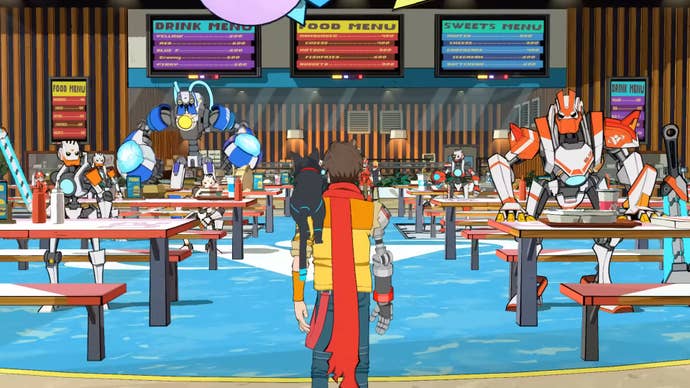
It’s painful for several reasons. Let’s just say, for a start, that it’s total bollocks that this studio has been closed after shipping a game that, last year, Xbox couldn’t stop holding up as a slam-dunk success. It was Microsoft’s first release in years to be in the game of the year discussion in a real way.
“Hi-Fi Rush was a break out hit for us and our players in all key measurements and expectations,” Xbox marketing exec Aaron Greenberg tweeted with glee in April of last year. In interviews with Japanese outlets, Spencer used Hi-Fi rush as an example of Xbox publishing Japanese-made hits, promising more to come.
A hit in all key measurements is not good enough, it seems - even when, with the Yen at its weakest point against the dollar in over a decade, the studio must also have been comparatively cheap to run. All of these closures hurt, but this one felt particularly unconscionable.
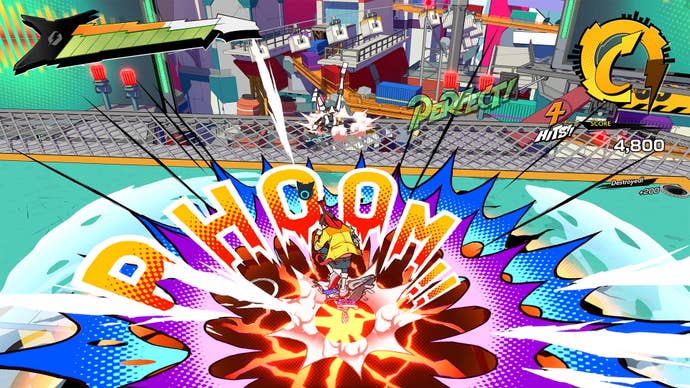
More than anything, though, it’s a gut punch because it sends a message. The wrong message, really. Xbox had one major studio in Japan - no more. Xbox is making deals with third parties and independent creators, yes - it’s got something in the pipes with Hideo Kojima, for instance - but like I said, the first party is your north star. It’s your best foot forward. The message becomes this: Japanese games are not a priority for us.
No amount of Spencer pow-wowing on the Final Fantasy fanfest stage with the Square Enix CEO changes that. No amount of co-marketing money thrown at Persona or Yakuza to get Xbox versions and Xbox logos on the trailers can undo that message. Publishing a Kojima game might help a bit - but not as much as having a beloved Japanese studio in your actual stable. In the end, Kojima is just a gun for hire - whatever he makes for Xbox will be compared to Death Stranding and his big new spy franchise at Sony.
And furthermore, if you were a Japanese publisher or developer approached for acquisition, how would you rate the odds of survival for your business based on the evidence before you? Would government regulators trust that Microsoft would be a safe pair of hands for Japanese brands, big or small? In 2019, the year before the Bethesda deal, Xbox mulled over a purchase of Square Enix, not for the first time in its history. How much of Square Enix would remain now had the company pursued that takeover?
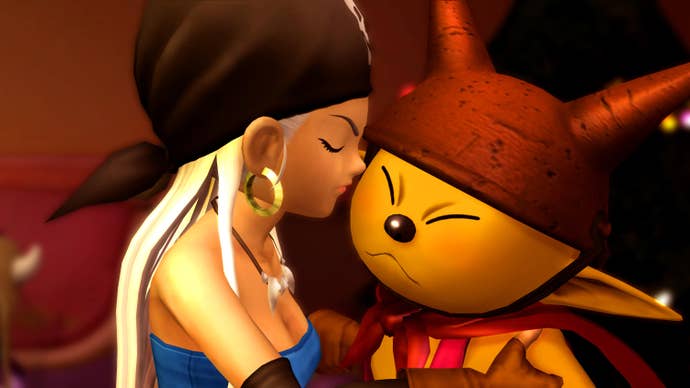
This is without getting into the optics of this closure contrasted with footage of Xbox’s executives lamenting the closure of Lionhead in an official 2021 documentary. “How do we not repeat the same mistakes?” Xbox’s Sarah Bond says of Lionhead’s demise. “You acquire a studio for what they’re great at now,” Spencer adds, which under the harsh light of 2024 generates a vibe more toxic than a FromSoftware swamp. “Your job is to help them accelerate how they do what they do, not them accelerate what you do.”
Under Xbox, Tango Gameworks did what it did well. It released a critical darling and commercial winner, at least based on executive gloating on social media, which is about the only metric we have for Xbox publishing success in the Game Pass era. Their reward was closure - and in less than half the time it took Xbox to shutter Lionhead.
It’d be remiss to not note in this article that Sony isn’t innocent in all this. Microsoft’s primary rival in the gaming space has made a number of brutal cuts this year, and they too have indulged in a gradual erasure of Japanese development. In 2021, Sony made the short-sighted decision to essentially end the 30-year history of Japan Studio - the brand ultimately responsible for titles like Gravity Rush, Ape Escape, and Shadow of the Colossus.
Japan Studio delivered some of Sony’s most esoteric and creative cult hits - but it wasn’t delivering the cinematic Hollywood bombast that could achieve eight-digit sales figures - so it had to go. It’s an indictment of the state of games, really, where everything needs to be bigger and bigger, with some of the bets beginning to feel completely untenable.
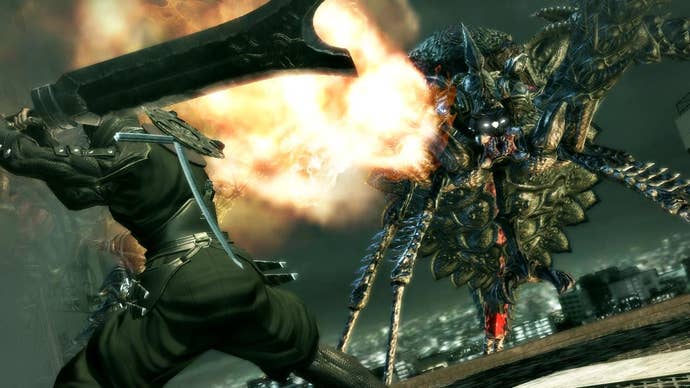
But when it comes to the optics, Sony has one major feather in its cap: it is Japanese. It is seen as the ‘natural’ home of series’ like Silent Hill, Final Fantasy, Monster Hunter, Kingdom Hearts, Resident Evil, and Meal Gear Solid - even when those titles also appear on other platforms. Sony’s crappy decisions in the Japanese market are thereby partially covered up by a storied history with the country and its developers; Xbox has no such luxury.
When you step back and boil events down to their most reductive, the message becomes subtle as a sledgehammer: Xbox is not the place to be if you want Japanese games. At this stage you’d even be better off on PC, an ecosystem that for a long time was completely ignored by the territory.
At a time when Xbox hardware sales continue to lag behind rivals everywhere, not just in Japan, that’s a potentially dangerous thing indeed; there are millions who love these sorts of games. Tango is but one studio, and one that’d only developed five games in its 14-year history. But Tango stood for something: powerful, well-supported, generously-funded, and supremely talented Xbox development in Japan.
Now it stands for something else: Xbox’s abandonment of the territory. Xbox PR and bosses would counter this by eloquently arguing that they have lots of unannounced development in Japan - partnerships with third parties, and even some first-party publishing agreements with non-owned studios. I’m sure Persona 6 will come to Xbox on day one, and maybe even have an Xbox marketing deal in the West. That’ll be a huge win.
But like I said - true, fully internal, fully-owned first party is your first impression. It is where perception of your brand begins. Perception is reality; and Tango Gameworks’ demise is now the banner-bearer for a particularly negative one. Xbox’s leadership team has a Fuji-sized mountain to climb to dispel that.

